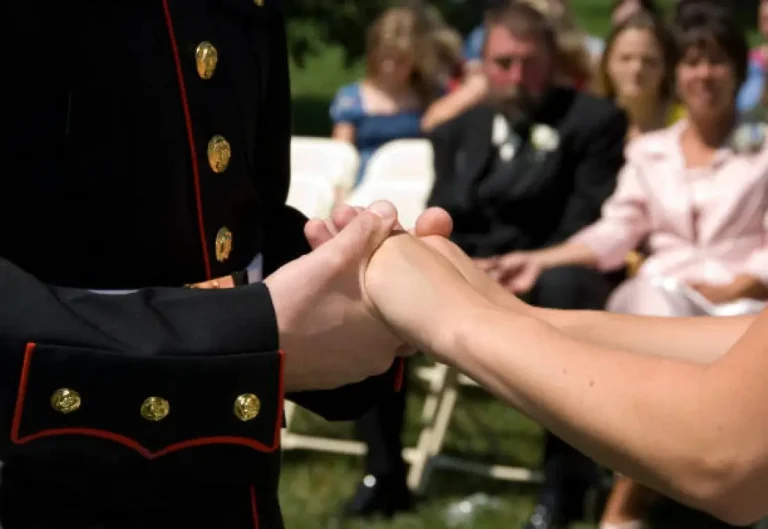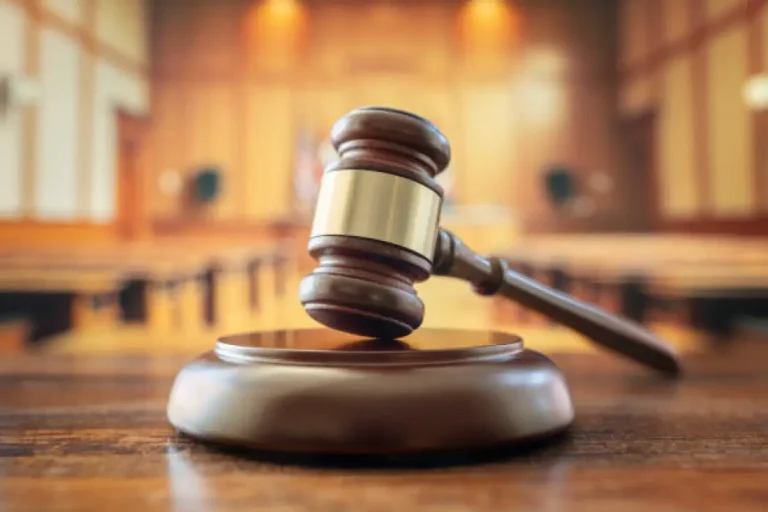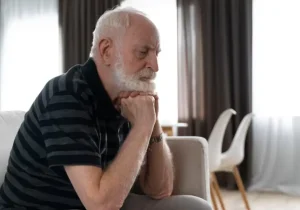My Mom Said ‘Stay Quiet, He Has a Future’—My Doctor Had Other Plans
My name is Rachel Moore, and for twenty-seven years, I believed that being invisible was the safest way to exist in my family. I had convinced myself that if I could just be good enough, quiet enough, and undemanding enough, I would eventually earn the love and acceptance that seemed to flow so freely to my younger brother. What I discovered on one devastating Saturday night was that no amount of self-erasure could protect me from the violence that had been building in our household for years.
This is the story of how a single moment of medical courage saved my life and taught me that some silences are more dangerous than any truth.
The Golden Child and the Invisible Daughter
Our family had always revolved around Zachary like planets around a sun, with everyone else existing in his gravitational pull. At twenty-four, Zach was everything my parents had dreamed of in a son—a gifted athlete with genuine professional potential, blessed with natural talent and the kind of charismatic confidence that coaches and scouts noticed immediately.
My parents, Deborah and Martin Moore, had invested not just their financial resources but their entire emotional well-being into Zach’s success. Every achievement was celebrated as if it were a family victory, every setback was treated as a temporary obstacle to be overcome through increased support and resources. In their eyes, Zach represented their legacy, their vindication as parents, and their ticket to the kind of reflected glory that comes from raising a star.
I had moved back into their house six months before the incident that would change everything. Financial difficulties had forced me to give up my small apartment, and despite my reservations about returning to the family home, I had nowhere else to go. What I found was a house that had been transformed into a shrine to Zach’s accomplishments and my parents’ unwavering devotion to his future.
His trophies, medals, and framed newspaper clippings covered every available surface in the common areas. The mantelpiece that had once displayed family photos now showcased his athletic achievements exclusively. Even my childhood bedroom had been converted into a display space for his memorabilia, forcing me to sleep in what had once been a guest room.
The Warning Signs Nobody Wanted to See
Living in close quarters with my family again, I began to notice troubling patterns that I had either missed or deliberately ignored during my previous visits home. The dents in Zach’s bedroom wall from angry fists. The way conversations stopped abruptly when his mood shifted. The nervous glances my parents exchanged when his temper began to flare.
Most disturbing was the reaction of his ex-girlfriend, Sarah, when I encountered her at a local coffee shop. The moment she saw me, her face went pale, and her eyes darted around as if she were looking for escape routes. When I mentioned Zach casually, she physically recoiled and quickly excused herself from our conversation.
I saw these warning signs clearly, but I said nothing. In my family, silence wasn’t just expected—it was the highest form of loyalty. Questioning Zach’s behavior or expressing concern about his increasingly volatile moods would have been viewed as betrayal of the worst kind.
The Night Everything Changed
The assault occurred on a Saturday evening in late November. Zach had suffered a devastating loss in what should have been a career-defining basketball game, and he had disappeared for hours afterward. When he finally returned home around midnight, the acrid smell of stale beer clung to his clothes like a toxic cloud.
I was in the kitchen, attempting to make myself as small and unnoticeable as possible while cleaning up the dinner dishes. In my family, I had learned that the safest strategy during Zach’s dark moods was complete invisibility.
“What are you looking at?” he snarled, his voice carrying a menacing edge that made my stomach clench with familiar dread.
“Nothing, Zach. I was just finishing the dishes,” I replied, keeping my voice soft and non-confrontational. In a misguided attempt to console him, I added, “It was just one game. It doesn’t define your entire career.”
Those words—meant to comfort—became the trigger for an explosion of violence that I should have seen coming.
His eyes went completely black with rage. “What did you say?” he whispered, his voice dropping to a dangerous monotone that was somehow more terrifying than shouting.
What happened next occurred with shocking speed. Before I could process his movement or attempt to protect myself, Zach grabbed the front of my shirt with both hands and slammed me backward into the sharp edge of our granite kitchen countertop with tremendous force.
The impact drove all the air from my lungs in a single, agonizing burst. I collapsed to the floor, gasping for breath that wouldn’t come. But he wasn’t finished. As I lay crumpled and helpless, Zach drew his leg back and delivered a vicious kick to my ribcage. The sickening crack that echoed through the kitchen was the sound of my bones breaking.
Then everything went black.
The Family’s Response
When consciousness returned, the world existed through a haze of overwhelming pain that made every breath an ordeal. My mother was kneeling beside me on the kitchen floor, but her attention wasn’t focused on my injuries. Instead, she was watching the doorway with nervous anticipation.
“Rachel,” she whispered urgently, her voice cold and devoid of maternal comfort, “your father is coming downstairs. You need to get up right now.”
“I can’t,” I gasped, each word sending lightning bolts of agony through my chest. “I can’t breathe properly.”
When her eyes finally met mine, I saw no sympathy, no concern for my wellbeing, no maternal instinct to protect her injured daughter. Instead, I saw only fear—but not fear for me. Fear for Zach and what the consequences of his actions might mean for his future.
“Listen to me very carefully,” she said, her tone carrying the weight of absolute command. “You tripped and fell. You hit the counter when you lost your balance. That’s what happened. Do you understand me? You know how sensitive Zach is about his performance. This kind of incident could completely destroy his draft prospects.”
The twisted logic was breathtaking. Her son had just broken my ribs in a fit of rage, and her primary concern was protecting his athletic career from the consequences of his violent behavior.
I managed to crawl to the small downstairs bathroom and lock the door behind me, my ribs screaming in protest with every movement. Through the thin wood, I could hear my parents’ urgent whispered conference—my father’s low, authoritative rumble mixing with my mother’s panicked explanations. I could also hear Zach climbing the stairs to his bedroom, where he slammed the door and went to sleep as if nothing had happened.
It was then that I heard my mother’s voice clearly through the bathroom door, delivering the words that would haunt me for months to come: “Keep quiet about this, Rachel. You’ll ruin his future if you say anything.”
The Medical Intervention
The next morning, my father’s face was a mask of stone-cold determination as he issued his orders. “Get in the car immediately,” he commanded. “I’m taking you to the urgent care clinic to have those bruises looked at.”
During the drive, he stared straight ahead, his hands gripping the steering wheel with white-knuckled intensity. “You fell down the stairs last night,” he stated flatly. This wasn’t a suggestion or a request—it was a direct order. “That’s exactly what you’re going to tell the medical staff. We don’t need any unnecessary drama or complications. Promise me you’ll stick to that story, Rachel.”
I was so emotionally beaten down and physically painful that I simply nodded my agreement, too exhausted to fight against the narrative they had constructed around my assault.
At the clinic, I was examined by Dr. Melissa Trent, a physician whose kind eyes and calm, professional demeanor immediately set her apart from the chaos of my family dynamic. When she gently pressed on my injured side to assess the damage, I couldn’t suppress the sharp cry of pain that escaped my lips.
“I need to order X-rays to determine the extent of your injuries,” she said softly, her voice carrying genuine concern. “But first, I want you to be completely honest with me about what happened. The pattern of bruising I’m seeing here doesn’t match the story of a simple fall down stairs.”
She leaned closer, her eyes meeting mine with an intensity that made it impossible to look away. “Rachel, did someone deliberately cause these injuries?”
I felt myself freeze completely. My father was sitting in the waiting room just outside, expecting me to emerge with a medical report that would support the fabricated story he had crafted. For my entire life, my family had looked at me without truly seeing me, treating me as little more than a convenient scapegoat for Zach’s problems. But this woman—this complete stranger—was seeing my pain clearly and refusing to accept the lies that surrounded it.
Tears that I didn’t even know I had been holding back began to well up in my eyes. “I… I can’t tell you,” I stammered, terrified of the consequences that would follow if I spoke the truth.
The Moment of Truth
After reviewing my X-rays, Dr. Trent returned to the examination room and carefully closed the door behind her. Her expression was serious but compassionate as she delivered her findings.
“You have two completely broken ribs and a third that’s severely fractured,” she explained gently but firmly. “This type of injury pattern requires a significant amount of focused force. These are not injuries that result from accidentally falling down stairs.”
She paused, allowing the medical evidence to speak for itself before continuing. “Rachel, I’m going to ask you one more time, and I need you to understand something important. I am what’s called a mandated reporter. That means if I have reason to believe that a crime has been committed, especially one involving abuse or domestic violence, I am legally required to report it to the appropriate authorities.”
Her voice carried the weight of professional obligation mixed with genuine human concern. “Did someone deliberately do this to you?”
The world seemed to stop rotating on its axis. I stared at the X-ray images of my own broken bones—stark, undeniable evidence of what Zach had done to me. I looked at this doctor who was willing to stand up for me when my own parents had chosen to protect my abuser instead.
In a voice that was barely audible, I finally spoke the truth: “My brother did this.”
The Aftermath
The words hung in the air between us like a confession that could never be taken back. Immediately, I began to cry, my emotional dam finally bursting after years of suppressed fear and anger. “Please don’t do anything,” I begged desperately. “It will tear my family apart completely. It will ruin his entire life and career.”
Dr. Trent’s response was firm but not unkind. “Rachel, he broke your ribs. What about your life? What about your safety and wellbeing? I cannot and will not let this incident go unreported.”
The choice was no longer mine to make. She picked up her phone and made the call that would change everything.
By the time my father drove me home from the clinic, a police car was already parked conspicuously in our driveway. The moment I walked through the front door, the reaction from my family was swift and absolutely devastating.
“What did you do?” my mother shrieked, her face contorted with pure hatred and rage.
My father grabbed my arm roughly, his fingers digging into my bruised flesh. “I told you to keep your mouth shut,” he hissed through clenched teeth. “You just destroyed your brother’s future. I hope you’re satisfied with yourself.”
But something fundamental had shifted inside me during that conversation with Dr. Trent. The fog of fear and intimidation that had controlled my life for so many years was finally beginning to lift. While my parents continued their verbal assault, I walked past them with newfound determination, went directly to my room, and began packing my belongings into suitcases.
I didn’t have a detailed plan for what would come next. I only knew with absolute certainty that I could not spend another night in that house.
Building a New Life
The first few weeks of independence were a blur of fear, uncertainty, and gradual healing. Dr. Trent became my anchor during this turbulent transition, helping me navigate systems and resources I had never known existed. She assisted me in finding a small, subsidized apartment on the other side of town—a modest space that was mostly empty but represented something I had never truly experienced before: safety and autonomy.
I filed a restraining order against Zach, a legal protection that felt both empowering and terrifying. My family’s response was a relentless campaign of phone calls and text messages designed to manipulate me back into silence. The messages ranged from guilt-inducing emotional manipulation to outright threats, and even included what appeared to be apologies from Zach that were so obviously crafted by my parents that they felt like additional insults.
I blocked all their numbers and began the process of establishing boundaries that should have existed decades earlier.
Dr. Trent connected me with a lawyer who specialized in domestic violence cases, and together we pursued legal action against Zach for both my medical expenses and the emotional trauma he had caused. The lawsuit and the accompanying police report created public records that eventually found their way back to his basketball league.
The professional consequences for Zach were swift and severe. His contract was suspended indefinitely pending investigation, and several colleges that had been recruiting him withdrew their offers. The golden future that my parents had sacrificed everything to protect suddenly became tarnished by the very violence they had tried so hard to conceal.
Finding Purpose
I began attending therapy sessions to address the years of emotional abuse and manipulation I had endured. Slowly, I started to heal not just physically but psychologically, learning to recognize my own worth and to trust my instincts about dangerous situations.
Months later, while researching community resources, I discovered information about grants available for domestic violence prevention programs. I spent weeks crafting a detailed proposal for an after-school program specifically designed for young girls from abusive or neglectful home environments—a safe space where they could learn that their voices mattered and that they deserved protection and support.
When I received notification that my grant application had been approved, I felt a sense of purpose and validation that I had never experienced before. I named the program “The Quiet Should Speak,” reflecting my own journey from silence to advocacy.
The Public Confrontation
About a year after the assault, my program was hosting a small fundraising event to expand our services to additional schools in the area. I was speaking from the podium about the importance of giving voice to young victims when the auditorium’s back doors suddenly burst open with a tremendous crash.
It was Zach. He looked rough and disheveled, his previously immaculate appearance now reflecting the downward trajectory of his life since the assault charges became public. But his eyes still held that familiar rage that had terrified me for so many years.
“You!” he shouted, pointing an accusatory finger directly at me. The crowded auditorium fell into shocked silence. “You did this to me! You ruined my entire life! All because of a stupid accident!”
My heart hammered against the same ribs he had broken, and for a moment, muscle memory threatened to drag me back into the old patterns of fear and submission. The previous version of Rachel would have hidden, apologized, or tried to de-escalate his anger through self-blame.
But I was no longer that person.
I calmly stepped down from the stage and walked to the center aisle, positioning myself so that everyone in the auditorium could see both of us clearly. I looked directly at Zach without flinching, then turned to address the crowd of supporters, donors, and community members who had come to learn about our work.
“This,” I said clearly, my voice carrying to every corner of the room without trembling, “is the man who broke my ribs when I tried to comfort him after a basketball game.”
I paused, allowing the weight of those words to settle over the audience before continuing. “And this is an example of the family dynamics that tell victims to stay quiet in order to protect their abusers.”
The silence that followed was more powerful than any shouting, more damning than any legal verdict. It was the silence of a community bearing witness to truth and refusing to enable further abuse.
Security personnel calmly escorted a sputtering, defeated Zach out of the building while the audience remained completely silent, their attention focused on supporting me rather than engaging with his disruption.
The New Rachel
I never returned to my family or attempted to rebuild those relationships. I learned that I didn’t need their apologies, their acknowledgment, or their approval to be whole and valuable as a person. I had discovered my own voice, built meaningful work, and created a life based on authentic relationships rather than fear-based obligation.
For the first time in my existence, that was not just enough—it was everything.
My story isn’t unique, but my ending is unfortunately rare. Too many victims of family violence never escape the cycles of abuse because the people who should protect them instead choose to protect their abusers. Too many suffer in silence because speaking up is painted as betrayal rather than survival.
But I learned that some betrayals are actually acts of self-preservation, and some silences are more dangerous than any truth we might speak.
A Message of Hope
If you recognize yourself in my story—if you’re living with family violence while being told to stay quiet for someone else’s future—please know that your future matters too. Your safety matters. Your voice matters.
There are people like Dr. Trent in this world, professionals who are trained to see through the lies that families construct around abuse. There are resources available, legal protections that can be implemented, and communities of support waiting to help you rebuild.
The hardest part is often taking that first step toward honesty about what’s happening to you. But once you take it, you’ll discover that you’re stronger than you ever knew, and that the life you can build for yourself is worth far more than any silence you’ve been asked to maintain.
My brother’s future didn’t deserve protection through my continued suffering. Neither does anyone else’s.
Sometimes the most loving thing you can do for your family is refuse to enable their worst behaviors. Sometimes the most courageous thing you can do for yourself is tell the truth, even when everyone around you has invested in the lie.
And sometimes, the most important thing a stranger can do is see your pain clearly and refuse to look away.
Dr. Trent taught me that medical professionals don’t just heal bodies—sometimes they save lives by having the courage to make the phone call that patients can’t make themselves.
For that gift of courage and compassion, I will be grateful for the rest of my life.

Emily Johnson is a critically acclaimed essayist and novelist known for her thought-provoking works centered on feminism, women’s rights, and modern relationships. Born and raised in Portland, Oregon, Emily grew up with a deep love of books, often spending her afternoons at her local library. She went on to study literature and gender studies at UCLA, where she became deeply involved in activism and began publishing essays in campus journals. Her debut essay collection, Voices Unbound, struck a chord with readers nationwide for its fearless exploration of gender dynamics, identity, and the challenges faced by women in contemporary society. Emily later transitioned into fiction, writing novels that balance compelling storytelling with social commentary. Her protagonists are often strong, multidimensional women navigating love, ambition, and the struggles of everyday life, making her a favorite among readers who crave authentic, relatable narratives. Critics praise her ability to merge personal intimacy with universal themes. Off the page, Emily is an advocate for women in publishing, leading workshops that encourage young female writers to embrace their voices. She lives in Seattle with her partner and two rescue cats, where she continues to write, teach, and inspire a new generation of storytellers.









